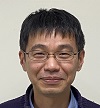[Opt Bio] Year Started : 2016
Tadashi Isa
Elucidating the higher-order brain functions by optogenetic manipulation of large-scaled circuits in nonhuman primate brain
Research Director
Tadashi Isa

Professor
Graduate School of Medicine
Kyoto University
Collaborator
| Jun Ohta | Professor Graduate School of Science and Technology Nara Institute of Science and Technology |
| Kenta Kobayashi | Associate Professor National Institute for Physiological Sciences National Institutes of Natural Sciences |
Outline
In this project, we aim at developing novel techniques that enable optogenetic manipulation of neural circuits spanning the cerebral cortex of macaque monkeys. For that, (1) We will develop highly efficient viral vector system(s) for the pathway-selective optogenetic manipulation. (2) We will develop powerful optic probe(s) for efficient irradiation of the large brain areas of macaque monkeys. (3) We combine these techniques, adopt appropriate opsins, and apply to proper neural system(s) to obtain successful outcome in optogenetic manipulation of specific circuits in the macaque brain. First, we will manipulate the dopaminergic projection from the ventral tegmental area and cholinergic projection from the ventral forebrain to frontal cortex and will examine their contribution to recovery from spinal cord injury. Second, we will manipulate the pathway from the area LIP to the dorsolateral prefrontal cortex to test its contribution to “blindsight”, recovery of visuo-motor function after lesion to the primary visual cortex.
Haruo Kasai
Synaptic optogenetics of memory structures
Research Director
Haruo Kasai

Professor
Graduate School of Medecine
The University of Tokyo
Collaborator
| Shin Ishii | Professor Graduate School of Informatics Kyoto University |
| Makoto Higuchi | Department Head Institute for Quantum Medical Science National Institutes for Quantum and Radiological Science and Technology |
| Tetsuo Yamamori | Team Leader Center for Brain Science RIKEN |
Outline
We will diversify and strengthen our synaptic optogenetic tool box for imaging and optical manipulation of the specific “memory structures” in the mouse brain, spanning individual synapses, circuits and brain areas. This goal is achieved by collaboration of four different laboratories with strongly expertize in cellular physiology, molecular biology, information science and non-invasive brain imaging.
Moritoshi Sato
Development of optogenetic tools for genome engineering and their applications to studying biological activities
Research Director
Moritoshi Sato

Professor
Graduate School of Arts and Sciences
The University of Tokyo
Collaborator
| Kazuo Takayama | Junior Associate Professor Center for iPS Cell Research and Application Kyoto University |
| Rei Narikawa | Associate Professor Faculty of Science, Department of Biological Sciences Tokyo Metropolitan University |
| Hideharu Mikami | Professor Research Institute for Electronic Science Hokkaido University |
| Masayuki Yazawa | Assistant Professor Department of Rehabilitation and Regenerative Medicine Columbia University(USA) |
Outline
This team focuses on the development of new tools for optical control of the genome. These tools will be controllable with near infrared light. Additionally, transgenic mice expressing the optogenetic tools will be developed to study neuronal diseases and the dynamic behavior of blood cells in vivo.
Michiyuki Matsuda
Optical technologies for interactive experimentation with cells on micro and macroscopic scales
Research Director
Michiyuki Matsuda

Professor
Graduate School of BIOSTUDIES
Kyoto University
Outline
By developing tools to visualize cell-to-cell signal transduction and to control the activity of relevant signaling molecules, we aim to better characterize and understand cellular proliferation, differentiation and immune-mediated cancer eradication using novel approaches. To image and manipulate cells on both micro and macroscopic scales, we will generate mice expressing fluorescence/bioluminescence hybrid biosensors and develop WiFi-connected imaging / LED devices. In this way, our goal is to establish new methodologies to observe and manipulate molecular activities in live animals.
Masashi Yanagisawa
Integrated analysis of the function of sleep and its regulatory mechanisms using optical technologies
Research Director
Masashi Yanagisawa

Director/Professor
International Institute for Integrative Sleep Medicine
University of Tsukuba
Collaborator
| Michael Lazarus | Professor Faculty of Medicine University of Tsukuba |
Outline
Sleep is a ubiquitous physiological process in animals. However, the function of sleep and its regulatory mechanisms are yet to be elucidated. For example, the physical substrate for “sleepiness” remains mysterious. Toward comprehensive understanding of sleep and wakefulness, we conduct multidisciplinary and integrated studies with optical methods, such as visualization and photochemical manipulation of “sleepy” molecules, development of optogenetic tools for slow depolarization, combined optical, metabolomic, and electrophysiological analysis of sleeping brain, and optogenetic screening for novel and evolutionary-conserved sleep-related genes.
Yuki Sudo
The study of regulatory mechanism of instinctive function which supports higher order brain function using fiberless optogenetics
Research Director
Yuki Sudo

Professor
Graduate School of Medicine, Dentistry and Pharmaceutical Sciences
Okayama University
Collaborator
| Hiroshi Ishikita | Professor Research Center for Advanced Science and Technology The University of Tokyo |
| Daisuke Ono | Lecturer Research Institute of Environmental Medicine Nagoya University |
Outline
Instinctive behaviors such as sleep/wakefulness affect higher order brain functions which are memory and decision making. Usual optogenetics method requires optical fiber insertion caused of invasion and restrict behaviors. Here, newly developed fiberless optogenetics allows us to control neurons in the deep area by illuminating infrared light. Using this method, we can reveal regulatory mechanism of relationship between sleep and memory.













